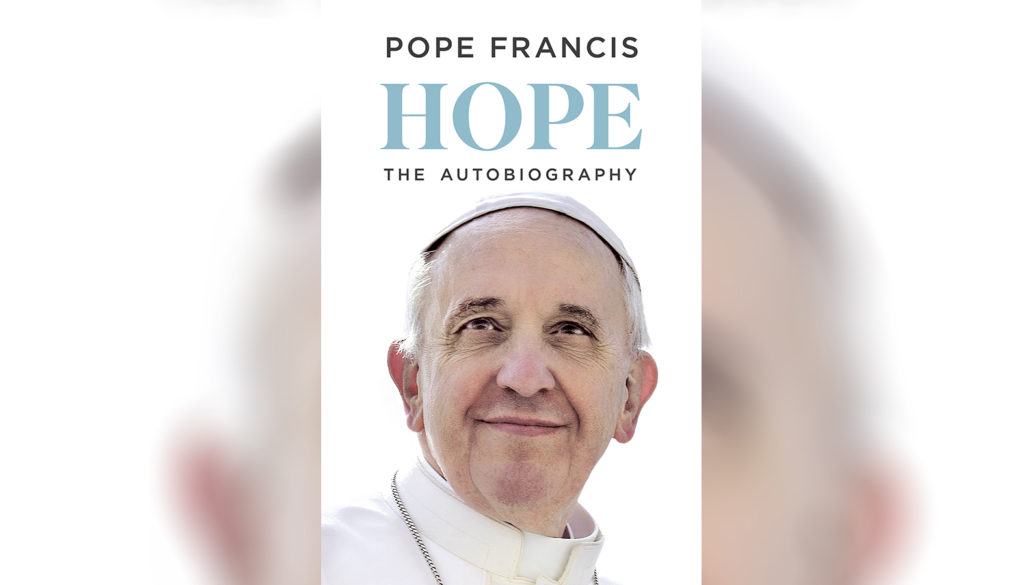A new book by Pope Francis is causing one of the strangest controversies of his pontificate: Was his autobiography ghostwritten?
“Hope: The Autobiography” was released this month, and the book was originally supposed to be put in the closet until after the pontiff’s death.
However, Francis decided the 2025 Jubilee Year was a good time to tell his story. The book goes into many of the details of his early life, and reiterates some of his present views which have caused controversy in the Church.
The book is co-written with the Italian journalist Carlo Musso, but some critics claim Musso is the primary author.
Of course, Pope Francis is 88 years old, and a pope using ghostwriters is not unheard of. Vatican insiders have long debated who “really” writes documents such as papal encyclicals.
It is also important to point out that in many European countries, even legal courts will rewrite testimony so it makes more sense, and get the person to sign the new work as the “official” testimony.
Complaints that the autobiography doesn’t always reflect the “real voice” of the pope seem to put aside the fact the book reflects his real opinions.
The 303-page volume covered a number of issues, including the controversial decision to allow priests to give a blessing to homosexual couples that requested it.
“It is the people who are blessed, not the relationships,” Francis writes. “Everyone in the Church is invited [for a blessing], including people who are divorced, including people who are homosexual, including people who are transgender.”
Of course, the decision caused an uproar among Catholics in Africa, and hurt relations with the Eastern Churches — a fact the book passes by.
Francis also defends his work against traditionalist Catholic priests, who he has often accused of being “rigid.”
“This rigidity is often accompanied by elegant and costly tailoring, lace, fancy trimmings, rochets. Not a taste for tradition but clerical ostentation,” he says.
The pope has done much to end the policies of his predecessor Pope Benedict XVI, who gave a lot of freedom to clergy who wanted to use the pre-Vatican II Mass, and as well the faithful who preferred it.
However, Francis used the book to complain about how “old rite” Catholics dressed and acted.
“These ways of dressing up sometimes conceal mental imbalance, emotional deviation, behavioral difficulties, a personal problem that may be exploited,” Francis claims.
He also complained about the attire he refused to wear in the moment after his election in 2013.
“They were not for me. Two days later they told me I would have to change my trousers, wear white ones. They made me laugh. I don’t want to be an ice cream seller, I said. And I kept my own,” the pope says.
“The red shoes? No, I have orthopedic shoes. I’m rather flat-footed,” Francis continues.
In much of the book, Francis seems to be using the opportunity to defend himself against the attacks from more conservative Catholics. Of course, this is not unprecedented; after all, after his retirement, Benedict also often defended the decisions he made.
Francis is also in a unique position, in that he follows two popes who had a more conservative view of what Vatican II represented. In Catholic theological terms, St. Pope John Paul II and Benedict came from the Communio school, which very much put the Council in a more direct relationship with the Church before the Council.
The present pope is very much in the Concilium school, which endorses the “spirit of Vatican II.” This means Francis has more reasons to explain his views in interviews and books.
However, “Hope: The Autobiography” also suffers from this tendency. Just last year, “Life: My Story Through History” was published (strangely, the “first papal biography” has been announced more than once), and soon after “Hope” was released, Francis did a lengthy interview on Italy’s television show Che Tempo Che Fa, which pushed his new book off the headlines.
These follow various interviews he gives to journalists — sometimes without even mentioning it to his own press office — and his often headline-inducing statements aboard the papal plane during trips to foreign countries.
There is a danger that this constant stream of written works by the pope — usually involving his personal opinions on controversial matters — is causing “papal fatigue.” I must admit, I had even forgotten “Life: My Story Through History” had come out less than a year ago.
Worse, it could make Francis’ words become something of a papal cotton candy: a great treat when it first appears, but easily dissolving in short order.

